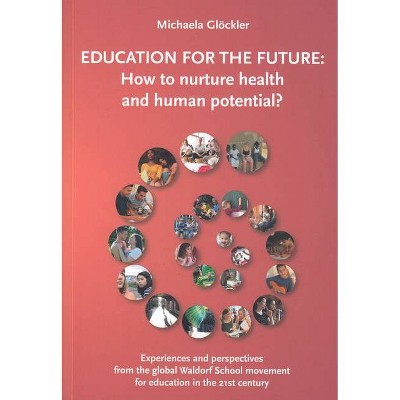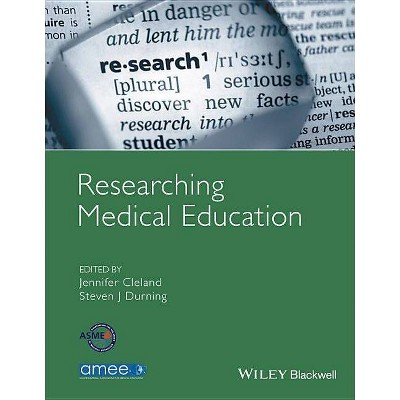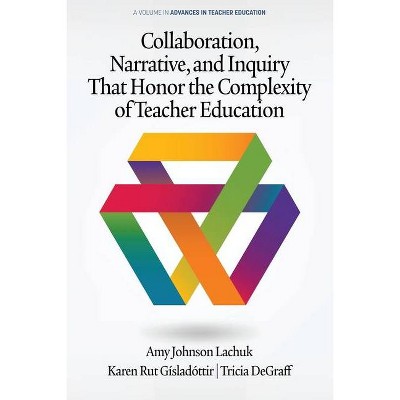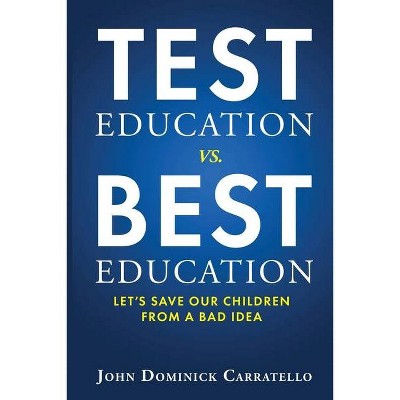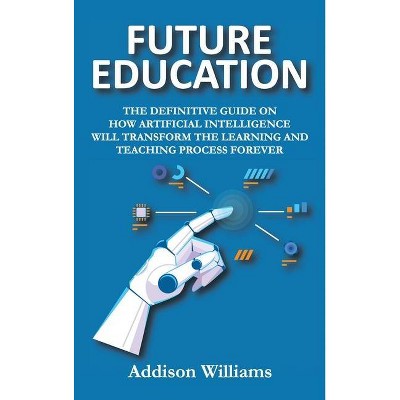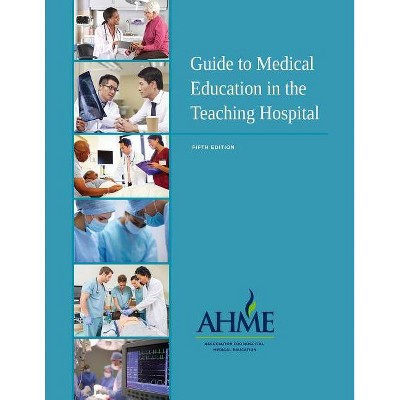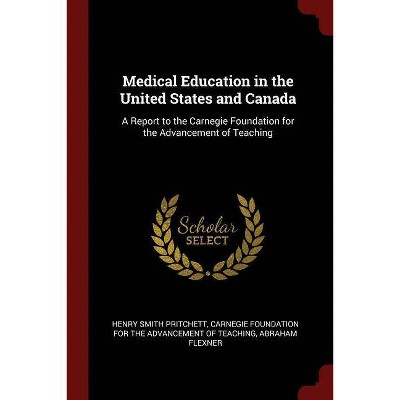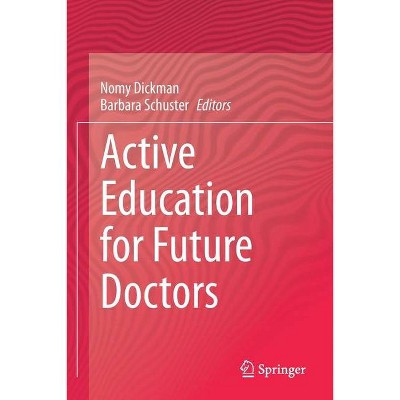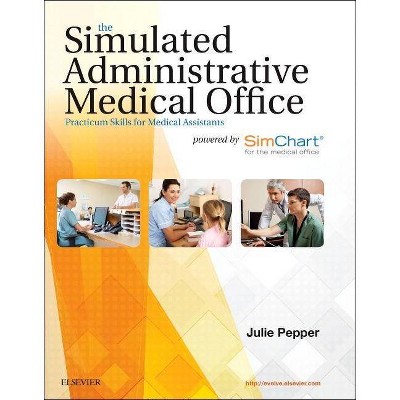Medical Education for the Future - (Advances in Medical Education) by Alan Bleakley & John Bligh & Julie Browne (Paperback)
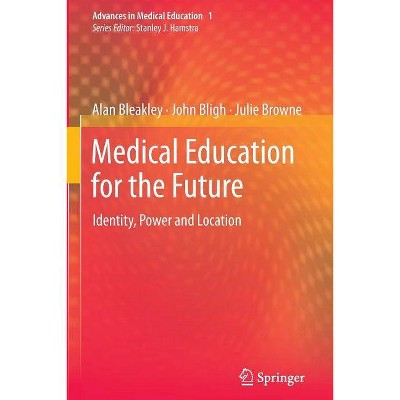
Similar Products
Products of same category from the store
AllProduct info
<p/><br></br><p><b> About the Book </b></p></br></br><p>This book argues that medical education is undergoing a deep transition - a paradigm shift or tipping point. The authors articulate the conditions of possibility for such a shift through examining relationships between power, identity and location. </p><p/><br></br><p><b> Book Synopsis </b></p></br></br>Contents Acknowledgements Introduction PART ONE: MEDICAL EDUCATION - A DEMOCRATISING FORCE FOR MEDICINE Chapter 1: Medical education as patient Not prophecy, but spotting trends Medical education in an historical key Crossroads and crisis: how is the patient? The symptom may be the 'education' in medical education, while the cure may be a new approach to education Chapter 2: Beyond practical reasoning From critical thinking to practical reasoning: a necessary but not sufficient change in medical education A new wave of medical education thinking 'Good enough' is not good enough Chapter 3: Learning from learning theory To the things themselves Where's the sense in medical education? - revisiting practical knowing Chapter 4: Socio-cultural learning theories Learning from history Three approaches to learning Miller lite Contrasting metaphors for learning Activity theory Cognitive apprenticeship and distributed cognition Dynamicist learning and complexity Systems thinking and learning Conclusions PART TWO: IDENTITY, POWER AND LOCATION IN MEDICAL EDUCATION Chapter 5: Producing doctors What is 'identity'? From the identity of 'medical student' to the identity of 'doctor': can learning theory illuminate this transition? Actor-Network-Theory (ANT) Communities of Practice (COP) Cultural-historical Activity Theory (CHAT) Chapter 6: New forms of identity in a runaway world of medicine Can the centre hold? The doctor as diagnostician, symptomatologist and connoisseur The doctor at work in the 21st century: emergence of new identities such as the 'medical citizen.' Chapter 7: The medical educator and the clinical teacher Unpicking the threads A framework for discussing the identity of the medical educator Using social learning theory frameworks to identify the medical educator and clinical teacher Chapter 8: Identity construction of the medical educator through learning and writing Introduction Identity defined by philosophy of teaching and learning: student-centredness and democracy in the classroom and clinic A literary perspective on identities of the medical educator Chapter 9: Power in medical education Bodies of power Sovereign, capillary, virtue, and virtual power Chapter 10: Place matters: location in medical education Introduction Where are we in medical education? Hospital architectures and cognitive architectures The white cube Work-based learning: vocation as location and deterritorialization Chapter 11: Learning by simulation and the simulation of learning An age of simulation Theory of simulation: classical to postmodern Strengths and weaknesses of learning by simulation The simulation project: will a dialogue emerge between simulation and work-based learning? Chapter 12: Global medical education - a post-colonial dilemma Imperialism by the back door? Comparative education Is western medical education infectious? Flaws in the global medical education vision Global, local, or 'glocal'? The trade in knowledge as a commodity From reinforcing the colonial legacy to challenging the colonial gaze Empire and forms of resistance PART THREE: MEDICAL EDUCATION RESEARCH - A DEMOCRATISING FORCE FOR MEDICAL EDUCATION Chapter 13: Let's get real: medical students learning from, with and about patients Productive forms of the medical encounter Towards an authentic patient-centred medical education Learning from the past Medical students learning from patients, supported by clinical teachers: a new vintage Patient, medical student and doctor exchanges in medical education Chapter 14: Texts, authoring and reading in medical education The text is produced, not given (doing, talking and reading in the patient encounter) Kinds of text in reading patients: a summary model Text is not an answer, but a question Problem-based learning or patient-based learning? Evidence for the value of a triadic model Chapter 15: Lack, trajectories and ruptures in medical education research Medical education research at a crossroads Origins of medica<p/><br></br><p><b> From the Back Cover </b></p></br></br><p>The purpose of medical education is to benefit patients by improving the work of doctors. Patient centeredness is a centuries old concept in medicine, but there is still a long way to go before medical education can truly be said to be patient centered. Ensuring the centrality of the patient is a particular challenge during medical education, when students are still forming an identity as trainee doctors, and conservative attitudes towards medicine and education are common amongst medical teachers, making it hard to bring about improvements. How can teachers, policy makers, researchers and doctors bring about lasting change that will restore the patient to the heart of medical education? The authors, experienced medical educators, explore the role of the patient in medical education in terms of identity, power and location. Using innovative political, philosophical, cultural and literary critical frameworks that have previously never been applied so consistently to the field, the authors provide a fundamental reconceptualisation of medical teaching and learning, with an emphasis upon learning at the bedside and in the clinic. They offer a wealth of practical and conceptual insights into the three-way relationship between patients, students and teachers, setting out a radical and exciting approach to a medical education for the future.</p> <p>"<i>This book is a truly visionary contribution to the Flexner centenary. It is compulsory reading for the medical educationalist with a serious concern for the future - and for the welfare of patients and learners in the here and now."</i></p><p><b>Professor Tim Dornan</b>, University of Manchester Medical School and Maastricht University Graduate School of Health Professions </p><p>
Price History
Price Archive shows prices from various stores, lets you see history and find the cheapest. There is no actual sale on the website. For all support, inquiry and suggestion messages communication@pricearchive.us
